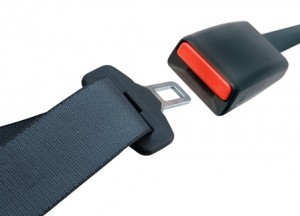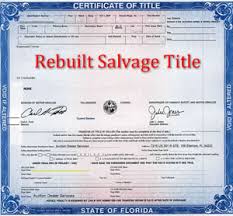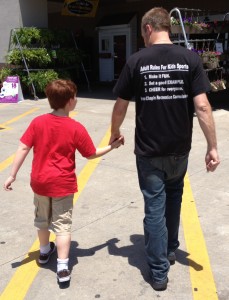 The story is told of former World Champion Boxer, Muhammad Ali, seated on a commercial airliner when the flight attendant noticed his seat belt was unfastened. He was given the gentle reminder like every other passenger:
The story is told of former World Champion Boxer, Muhammad Ali, seated on a commercial airliner when the flight attendant noticed his seat belt was unfastened. He was given the gentle reminder like every other passenger:
“Mr. Ali, you need to put on your seat belt since we are about to take off.”
His response, filled with hubris, was immediate and abrasive:
“Superman don’t need no seat belt.”
Without missing a beat, the flight attendant snapped back,
“Superman don’t need no plane.”
By all accounts Muhammad Ali was one of the greatest boxers of all time. Not surprisingly, he was also one of the most prideful. Greatness and pride tend to go hand in hand. In front of his challengers, fans and the media he would repeatedly brag about his own accomplishments and abilities and use his bravado to intimidate his opponents. In his prime, Ali is recorded as saying the following:
- “I’m the greatest. I said that even before I knew I was.”
- ” Not only do I knock ’em out. I pick the round.”
- “It’s hard to be humble when you are as great as I am.”
- “If you even dream of beating me, you’d better wake up and apologize.”
Clearly, Ali felt secure in his abilities to win in the ring. No one, he believed, could beat him. After a solid decade of fighting, no one could. From New York to Los Angeles, Canada to Germany – he was truly unstoppable. So invincible was he, even wearing a seat belt on a plane was apparently unnecessary.
*************************************
In 1996, at the age 20, James Altucher left his I.T. position at HBO to open his own company, Reset, Inc., a website design firm. By the end of his first year in business, he had secured contracts with massive companies like American Express, Con Edison and Time Warner. While most companies take at least three years to merely break even and five to become profitable, Altucher led Reset to outstanding growth almost immediately. In fact, his company grew so fast that by the end of its second year in existence, he was able to sell it for a cool $10 million dollars. This sale brought his total net worth to over $15 million dollars. Not bad for a 22 year old. Not bad for a startup company.
*************************************
Both stories highlight an underlying belief system most of us share about security.
 Conventional wisdom states that you are safer in a moving vehicle while wearing a seat belt. Considering the number of car accidents in a given year and the rate of speed that we travel on our highways (or airways) – wearing a seat belt definitely makes sense. But seat belts, as effective as they are – do not save every life. Sometimes that layer of security isn’t secure enough.
Conventional wisdom states that you are safer in a moving vehicle while wearing a seat belt. Considering the number of car accidents in a given year and the rate of speed that we travel on our highways (or airways) – wearing a seat belt definitely makes sense. But seat belts, as effective as they are – do not save every life. Sometimes that layer of security isn’t secure enough.
We are all convinced that $15 million dollars should last through multiple generations. There isn’t a person who hasn’t daydreamed what it would be like to win the lottery or be in possession of THAT kind of money. “If I had that amount of money,” we speculate, “I would….” The list of “woulds” is endless. Not on that list, however, is the scenario that the money would ever run out and you would be back to your previous standard of living.
Interestingly, we all begin our human journey in the same place – the security of a womb. A dark place, relatively quiet, snuggled tight, secure. For the first nine months of our existence, security is all we know. Every need is taken care of and we float – carefree – in a loving, safe environment. By contrast, on the day of our birth, we are ejected out of this peaceful bubble and exposed in every way possible. Bright lights. Loud noises. Butt naked. Compared to our previous environment, we enter a freezing world. Our first contact with another human being is usually a slap from the most educated person in the room. No wonder we come out screaming. WHAT THE HECK IS THIS PLACE? We spend every day for the rest of our lives trying to find security again.
We are a people who, deep down, crave and clamor for security. We wear seat belts, eat healthy and exercise because we want to be physically secure. We work hard, invest & save our money because we want to be financially secure. We get married, have kids & grow friendships because we want to be relationally secure. We believe in God, go to church & help others because we want to be spiritually secure. There is nothing wrong with our desire to feel safer. But, are our tactics truly working? Are we indeed safer because we wear seat belts, save our money or go to church? Do our feelings of safety translate into actual security?
As I write this, a friend’s mother lay on a hospital bed dying from a burst aneurism in her stomach. Two days ago, she was cooking dinner in her kitchen. In a mere few hours, she will no longer be with us. Such is the unpredictable and fragile nature of life. Just because you make a lot of money, doesn’t mean you get to keep it. Just because you feel healthy one week does not mean you will maintain your health the next. Just this afternoon, with a full bladder and too much on my mind, I walked into the public restroom at Panera Bread. How shocked I was to see a woman coming out of one of the stalls. The look on her face said it all…
It was not her geographical error but… (ahem) rather mine. #blush
Apparently my mind was as full as my bladder and I startled an unsuspecting woman “taking care of business.” Ugh. The point is we are all one mere accident, diagnosis or restroom door away from frightening insecurity. Sorry ma’am.
Over the course of my life, I have learned a few things about security – mainly, how fleeting it is. My friend Harry never smoked a day in his life and yet somehow got diagnosed with stage 4 throat cancer. Mentally astute college professors can eventually develop Alzheimer’s. Athletes in top physical condition can suffer heart attacks. Armored trucks can get robbed. Famous pastors can have affairs. Even beloved actors who play wholesome father figures on TV can be accused of heinous crimes like rape. And if there is one place on earth where we should feel the most secure, it is church – that is, until last week’s massacre in Charleston, SC.
Security is not always secure. Relationships that I thought were permanent turned out to be temporary. Jobs that I thought I could not lose were gone before I knew it. Investments that were “sure things” turned into “no-thing” in no time. People who I thought would out-live me were gone long before their time. Money, relationships, health, jobs, possessions, life – all rather fragile when you come to think of it.
The Biblical character, Job, certainly learned a thing or two about security. Referred by God Himself as the “greatest man in the east,” Job had everything you could want:
- status with God,
- wealth beyond measure,
- a spouse,
- a large family and
- a booming business.
If anyone had security, it was Job. That is, until God decided to make sure Job understood where his security really came from. In an unbelievably short period of time (minutes, not days), Job lost it all. In fact, before chapter 3 of the book that bears his name, Job was reduced to an unrecognizable stature. Having lost his money, business, children, home and good health – Job sat alone – in agony – with a handful of friends contemplating his unfortunate turn of events. Bad things, we think, should not happen to good people. Job was not just good people. By God’s own definition, he was truly the greatest. And sometimes the greatest among us need to be reminded Who is truly keeping things secure. How did Job handle his most insecure moment? Our ancestor of the faith teaches us a proper response:
“At this, Job got up and tore his robe and shaved his head. Then he fell to the ground in worship and said: ‘Naked I came from my mother’s womb, and naked I will depart. The Lord gave and the Lord has taken away; may the name of the Lord be praised.’”
If there is one thing that tends to accompany a trial or tragedy, it’s perspective. Sadly, we often have to lose a loved one for us to truly appreciate what they meant to us. It’s not until we are in a hospital room or wheelchair that we realize just how precious our health really was. It often takes turbulence in our lives to remind us that we are simply wingless creatures, sitting in a metal tube, traveling 600 miles per hour some 35,000 feet above the ground. In those scary moments we recognize it’s not just a human pilot who determines our ultimate destination.
In the ashes, Job had received the gift of perspective. He realized that he came into this world with nothing and he will one day leave this world with nothing. His losses, with that perspective, helped him realize his place, however painful that place was in the moment. His greatness was not a result of his accomplishments but his divine Accomplice.
It’s easy for us, in the midst of our loss, to let the loss taint our current perspective. When someone loses a job, loved one, health, status, peace, home – it’s easy to let that loss consume our thoughts and life. Many times, it’s the only thing we can see. And sometimes, focusing on the loss can blind us from not only seeing the possibilities on the other side of the fence, but who our ultimate Neighbor is.
*************************************
By the end of 1998, Altucher had sold his hugely successful website design firm (Reset, Inc) and had (according to his estimation) about $15 million dollars in the bank. $15 million dollars, in any economy, should last several lifetimes. That amount of income would easily put Altucher in the category of “financially secure.” For Altucher, however, that security was short-lived. Financial mismanagement, overspending and poor investments created a trifecta of loss. What should have lasted forever was gone – all of it – in less than 24 months. From $15 million to bankruptcy in under two years. For Altucher, it was his Job moment.
Muhammad Ali enjoyed over a decade of untouchable wins and unstoppable victories. It was widely believed (especially by Ali) that he was unbeatable. Then, on March 8, 1971 the security of that belief was rocked when an opponent by the name of Joe Frazier put the “greatest” in his place. It was the first loss that Muhammad Ali experienced in 32 professional bouts. The greatest was no longer the greatest. Two years later, Ali would hit the canvass again, this time suffering a broken jaw and devastating loss to boxing champion, Ken Norton. The “greatest” boxer was never the greatest again.
And that’s the point. Security, this side of eternity, is fleeting. I understand that feeling, all too well. As a small child, I watched my Dad die in front of me. I have been stranded on the side of the road (on more than one occasion) because of a flat tire or dead battery. I have stood in court and heard my marriage officially declared over. I have scoured the classifieds during my extended periods of unemployment. I have experienced the loss of freedom. I have been “un-friended” numerous times over the years. Daily I deal with the pain of being separated from my own children. My life has been a constant, painful reminder that my security is not found in people, places or things.
Where is your security today? Is it in your net worth? Is it in your strongest relationship? Is it in your body image, intellect, bank account or current employment? The truth is, while all those things are certainly acceptable to enjoy, there will come a day when you will be rocked to the core and left with little to no security. In that moment, where will you turn?
May you turn to the only One who can provide true security, in this life and in the one to come.
“Some trust in chariots and some in horses, but we trust in the name of the Lord our God.” (Psalm 20:7)
“So do not fear, for I am with you; do not be dismayed, for I am your God. I will strengthen you and help you; I will uphold you with my righteous right hand.” (Isaiah 41:10)
“Keep your lives free from the love of money and be content with what you have, because God has said, ‘Never will I leave you; never will I forsake you.” (Hebrews 13:5)













